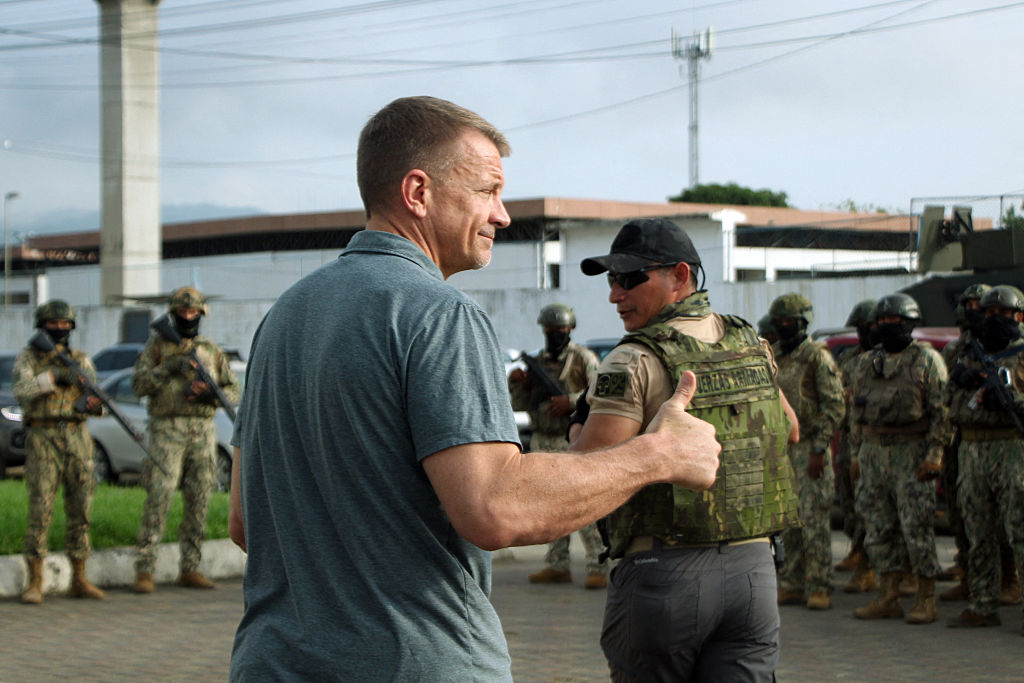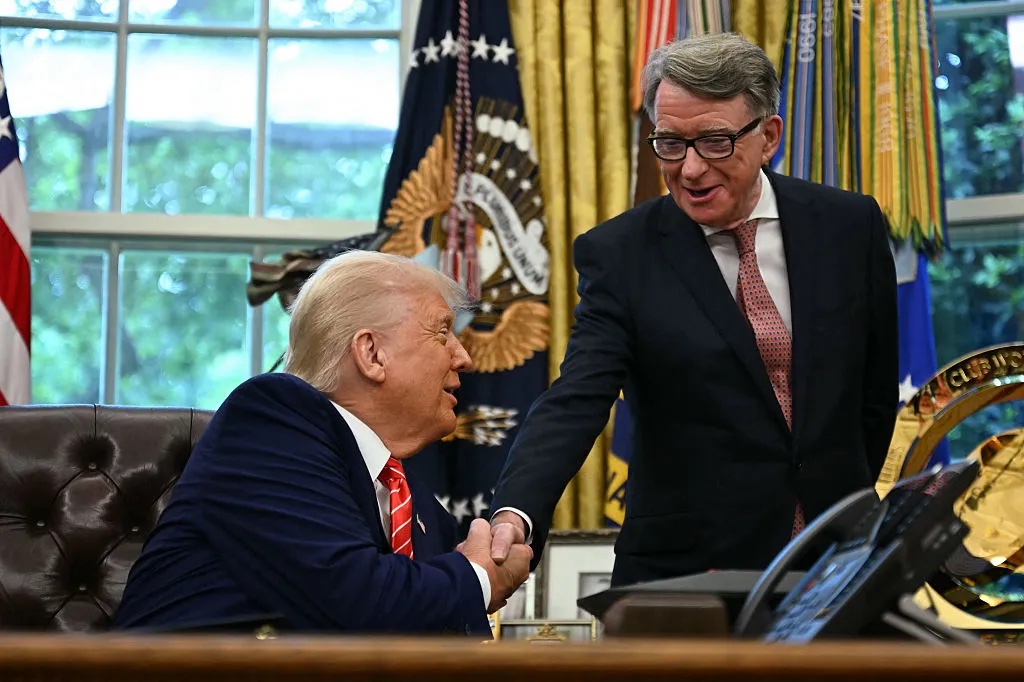Two years after the fiery death of Yevgeny Prigozhin, the warlord behind Russia’s Wagner Group, the global shadow war waged by mercenaries and contractors still rages on. And now one of the most well-known names in the mercenary world is back in the headlines: Erik Prince. The founder of Blackwater and longtime ally of President Donald Trump, is on the ground in Haiti, where he has signed a deal with the government to take on the armed gangs that have brought the capital to the brink of collapse.
Prince sold Blackwater in 2010 after its contractors opened fire on civilians in Iraq and it now operates under a different name.
Today, Prince and the Haitian government believe they can successfully regain control of Haiti with US private contractors, where a $600 million UN-led stabilization effort, spearheaded by Kenyan police – and backed by the Biden administration – failed. The country is reeling from mercenary-induced political assassination, state collapse and an unprecedented humanitarian crisis.
Meanwhile, in Gaza, American contractors are playing a more overt role. Under the terms of a US-brokered ceasefire and hostage-release agreement, a trio of private firms is overseeing the security of the Salah al-Din Road’s Netzarim corridor. Their mission: inspect vehicles and ensure that no explosives or weapons flow northward as displaced Palestinians attempt to return home. The two US private security firms, UG Solutions and Safe Reach Solutions, have reportedly deployed over 100 former US special operations forces to the region.
Though their mandates in Haiti and Gaza differ, the presence of US contractors in both hotspots signals a deeper and more consequential shift: the resurgence of private military and security forces as a foreign policy tool. After years of decline following the drawdowns in Iraq and Afghanistan, the United States is once again leaning on private actors to project power in collapsing states and conflict zones.
In both regions, mercenaries and contractors are nothing new, their footprints long precede today’s deployments. US contractors were killed in Gaza in 2003, and more recently, in 2021, Colombian mercenaries were implicated in the assassination of Haiti’s then-president, Jovenel Moïse, an event that plunged the country into today’s era of violence and lawlessness.
But the current resurgence raises a stark question: are we witnessing a pragmatic return to the supposed efficiency of the private sector, or are we sliding down a dangerous slope where accountability, sovereignty and the state’s legitimate monopoly on force are outsourced in the name of pragmatism?
A heated debate about the legal distinctions between mercenaries and private military and security companies is raging. Private Military Companies (PMCs) were typically seen as augmenting regular armies, offering training, weapon maintenance and even kinetic action. While Private Security Companies (PSCs) were tasked with passive roles, safeguarding infrastructure and people against criminal or terrorist threats.
Nonetheless, the terrain has shifted once more, giving rise to a fresh breed of mercenaries. These include companies that act unofficially on behalf of states, as well as security firms from China to Russia, operating in non-market economies, where the concept of “private” differs significantly from the Western understanding.
Across Africa, former Wagner operatives have rebranded as Africa Corps and continue to operate from Libya to Sudan as an armed proxy for Moscow. In the Caucasus and North Africa, Turkish firm SADAT has filled the space once occupied by regular armies.
The market for modern mercenaries, now encompassing cyber warfare, armed drone operations and intelligence for hire, is booming. Once limited to roles like infrastructure protection or training, private firms now blur the line between security and warfighting, and in some regions, these companies operate as proxies for state interests, often with murky legal status and even murkier chains of command.
In a landscape where accountability is optional and plausible deniability is built in by design, the distinction between contractor and mercenary is fading fast. This ambiguity doesn’t just blur battle lines, it undermines the very legitimacy of those private security firms that do play by the rules, adhering to codes of conduct and international law.
At the same time, it’s no accident that under a second Trump administration, the horizon for US private military contractors has widened like a freshly drawn war map, stretching from border control and migrant repatriation to whispered plans of shadow wars against Mexican drug cartels. A recent proposal to deploy an army of contractors to help the Trump administration speed up the deportation of undocumented migrants is a case in point. This plan includes establishing processing camps, using a private fleet of aircraft, and employing private citizens authorized to carry out arrests. The architecture of outsourced violence is no longer a contingency plan, it’s a policy with long-term implications.
Prince has long preached the gospel of privatized security. Back in 2017, during the first Trump administration, he laid it out in black and white in an op-ed “Contractors, Not Troops, Will Save Afghanistan”: Replace US Army soldiers with contractors, cutting costs, red tape and win wars. “No one should criticize a private company – mine or anyone else’s – for helping us end this ugly, multigenerational war,” he wrote, drawing a neat parallel to SpaceX and the less controversial handoff of spaceflight from NASA to Elon Musk.
Today, even Elon Musk has emerged as a central figure in the privatization of warfare. His Starlink satellites are now the neural network of the Ukrainian battlefield, a private pipeline powering a Ukrainian national war effort against Russia and amplifying the grey zone between commerce and combat.
But in places like Haiti and Gaza, critics warn that such logic could undermine fragile political arrangements and leave local populations at the mercy of gun-for-hire diplomacy.
While efficient and accountable private military and security companies play a legitimate role in supporting fragile states, the unchecked rise of unregulated PMCs and mercenary networks – from conflict zones to cyberspace – threatens to open a Pandora’s box. These actors risk doing far more harm than good: fueling conflict, deepening instability, fostering corruption, draining national resources and diverting potential recruits away from national armed forces.
In essence, they don’t just challenge the state’s authority, they erode national sovereignty from within.


























Leave a Reply